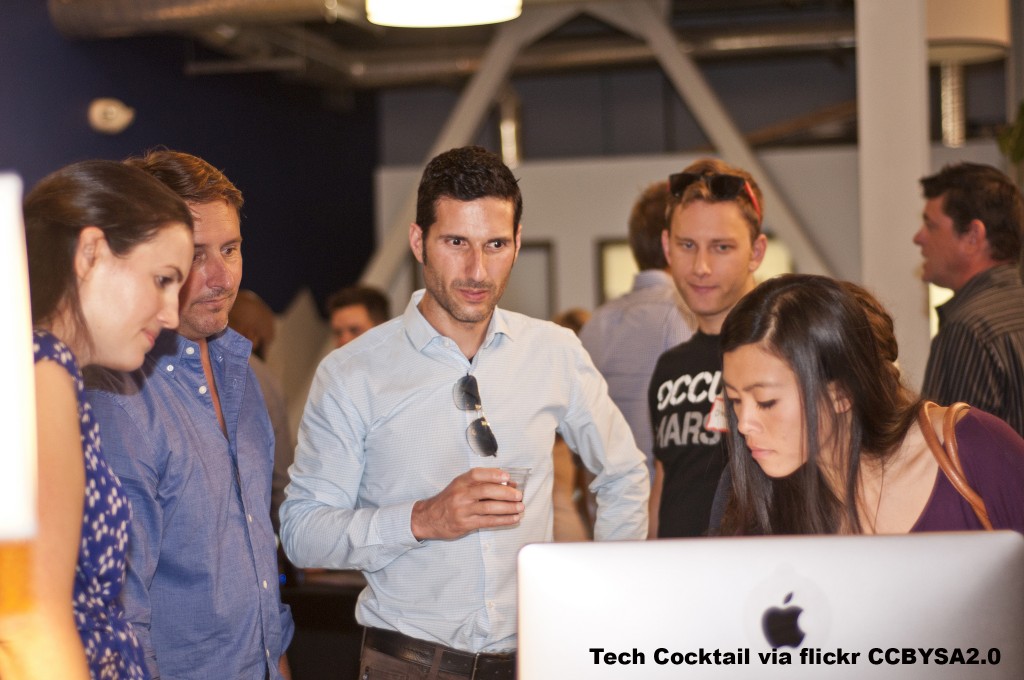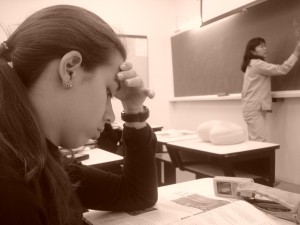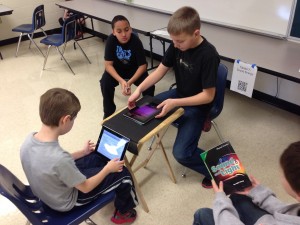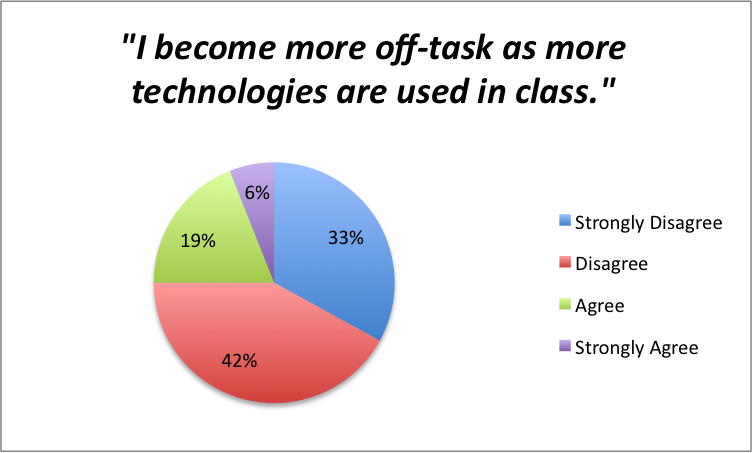SXSWedu Summit – Seeking EdTech Startups to join #SlowPitchEdu
Slow Pitch: An EdTech Design ThinkTank
I am delighted to announce that details and plans for our SXSWedu 2016 Summit are nearly complete! Our very last detail is to find 5 amazingly interesting edtech startups who would like to work towards developing/revising/rethinking a product that can transform teaching and learning in PK-12 subject areas and be successful penetrating the PK-12 market.
You can find all the details at my super specific website: http://slowpitchedu.com
Or, you can just launch into the application right now.
Teachers: Apply to have your POPs be turned into web-based lessons!
Interested in using internet-based resources/tools/software in your teaching of PK-12 subject matter? Don’t have time or don’t know where to start?
Would you like your teaching to look more like the classroom on the left or the right? If you said you are inclined more the right-hand picture where students are exploring sound and recording an audio podcast, then read on…
Let Masters and Ph.D. students in the UTexas Learning Technologies program assist you in designing web-based teaching and learning plans specifically for a problem of practice (POPs) you identify, with the technological resources you have at hand in your school. Not only will you receive a lesson plan(s), but you’ll also receive a research-based rationale for why the plan will positively impact students’ learning.
Complete the following application by Jan 15, 2016 to secure review of your proposal by the class in late January 2016.
By applying you are agreeing that if chosen:
- You will try your hardest to be available via videoconferencing sometime b/w 4:00 – 7:00 PM (CST) on occasional Tuesdays: early February and on April 26 or May 3, 2016.
- You will be available to answer questions via email.
- The learning/lesson plans and research-based rationales will be distributed publicly free of charge with Creative Commons licensing.
TechEdges presents research at AERA 2011 in New Orleans, LA; April 8-9, 2011
My research group is presenting several research papers at the American Educational Research Association’s annual conference in New Orleans, LA. We will be posting our handouts and presentation materials here at this website following our presentations. We would be delighted to meet you. Here are our sessions:
Session 1:
“Degree of Digital Equity in Schools by Race and Socioeconomic Characteristics” by Gloria Gonzales Dholakia, Joan E. Hughes, and Michelle Fulks Read
Friday, April 8, 2011 from 12:00 PM to 1:30 PM
Location: Sheraton Grand Ballroom B
In Session “Issues Associated with Technology in Teaching and Learning”
Abstract: This research examines and compares digital equity at two different middle schools. Focus is placed upon minority student in- and out-of-school technology use to explore the relationship of school characteristics and digital equity. The first middle school is a minority-majority school, with 93% Hispanic and African-American students. The second middle school is a historically white majority school participating in a district student-transfer program with a 50% white and 50% Hispanic/African American population. Digital inequities based on school socio-economic status and ethnicity are presented. Without addressing these unequal opportunities to acquire 21st century skills, educational change cannot be achieved.
Session 2:
“Research Snapshots from 2002-2010 on Preparing Preservice Teachers to Integrate Technology Into Teaching Within a 1:1 Laptop Teacher Education Program” by Joan E. Hughes, Hyojin Yoon, Nikki Wen, and Minwook Ok
Friday, April 8, 2011 from 4:05 PM to 5:35 PM
Location: New Orleans Marriott / Mardi Gras Salon A
In Session: Laptops in Preservice Teacher Education
Abstract: This paper is a compilation of recent research that has been conducted to understand the development of preservice teachers that are enrolled in a technology-rich teacher education program. This program is described as technology-rich to reflect its commitment to a 1:1 laptop environment in which all certification students had their own laptop for their certification studies. This paper attempts support dissemination and scale-up by providing a case of one technology-rich program including its programmatic description and the research base generated from studies set within it. Further, we aim for this work to generate discussion and orientation for future inter-institutional research in technology-rich teacher education.
Session 3:
“An Ecological Case Study of Two Middle Schools’ Technology Integration” by Michelle Fulks Read, Sara Jolly Jones, Joan E. Hughes, and Gloria Gonzales Dholakia
Saturday, April 9, 2011 from 10:35 AM to 12:05 PM
Location: Astor Crowne Plaza / Toulouse A
In Session: Clearing Technology Integration Hurdles in K-12
Abstract: In this series of ethnographic case studies, we utilize mixed methods to examine technology integration at schools that represent differing demographics, geographical locations and technology infrastructure. The first data set, collected from Saguaro Middle School in spring 2009, is compared with data collected from Porter Middle School in spring 2010 in which students, teachers and technology leaders are questioned. Results show wide digital technology usage for web, productivity, communication and creation domains for students and teachers at both schools. However, a large gap exists in the amount of student usage in- and out-of schools. The size of this gap differs between schools. School and district technology leaders rank a variety of elements important to their school’s technology vision.
Students’ perspectives on technology and distraction
In this data snippet, we explore how technology integration impacts middle school students’ learning and behavior from the students’ perspectives. The students were asked to provide their level of agreement or disagreement with the following statement: “I become more off-task as more technologies are used in class.”
Two hundred eight students were asked this question at Porter MS. As can be seen, a large portion of students (75%) either disagreed or strongly disagreed that the use of technology causes them to become off-task. A quarter of the students surveyed agreed or strongly agreed that their off-task behavior did increase as more technologies were used.
Students Use of Creative Technologies
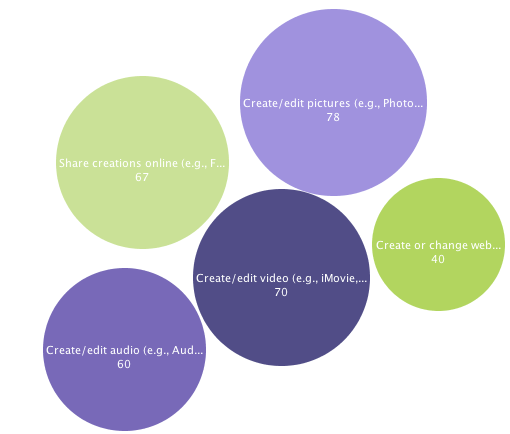 In our study, middle school students were asked which types of technologies they participated in at home, school or some other location. The specific technologies they were asked about were divided into four main categories: Communication, Productivity, Web-based and Creative. This bubble chart shows that students are creating and sharing with technologies in a variety of ways.
In our study, middle school students were asked which types of technologies they participated in at home, school or some other location. The specific technologies they were asked about were divided into four main categories: Communication, Productivity, Web-based and Creative. This bubble chart shows that students are creating and sharing with technologies in a variety of ways.
